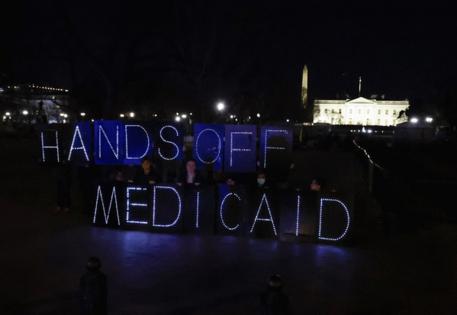Editorial: Talking real money: A billion here, a billion there
Published in Op Eds
If Republicans dare broach the subject of waste and fraud in Medicaid or Medicare, it will be seconds before Democrats accuse them of seeking to throw grandma out of her wheelchair or to leave impoverished children to fend for themselves in some dark Dickensian dystopia.
In fact, there are real issues that need attention, as Elon Musk’s DOGE initiative has quickly discovered. And the reality remains: The only way to seriously attack the nation’s $37 trillion debt is to craft more financially sustainable safety net and entitlement programs. Ignoring the issue only exacerbates the threat to their long-term solvency. Attacking waste and fraud is one place to start.
Consider a story in last week’s Wall Street Journal.
On Friday, the newspaper reported that double billing has cost U.S. taxpayers billions of dollars in Medicaid payments over the past three years. A Journal analysis found that health insurers collected $4.3 billion for “patients who were enrolled — and paid for — in other states.”
The slipup occurred most frequently when patients who were signed up for Medicare in one state moved to another state. “Most were getting all their health-care services through one insurer in one state,” the paper found, “even though Medicaid was paying insurers in both states to cover them.”
The five biggest Medicaid insurers received one-third of the duplicate payments, the report discovered.
While there’s likely some element of fraud involved in the billing process, much of the double billing can be attributed to inertia and bureaucratic sloth. Under current guidelines, Medicaid recipients who move to another state are supposed to cancel their coverage and re-enroll in their new home state. “But the recipients don’t always cancel,” the Journal noted, “leaving states to play catch-up.” The investigation found “some cases in which individuals were signed up in five or more states.”
The problem continues to cost billions even though auditors have known about it for years. The inspector general for the Department of Health and Human Services examined double payments in 2019 and concluded that taxpayers were on the hook for about $1 billion in such outlays each year. “It should be low-hanging fruit,” one government auditor told the Journal. “The data is there showing it is a problem. This is ripe for correction.”
In the private sector, such fiscal insanity would be quickly addressed before the company went bankrupt. There would probably be jobs lost. But when you’re entrenched in the government bureaucracy — at the state or federal level — and dealing with other people’s money, there is no such urgency. This is why the Trump administration’s DOGE exercise — while clumsy at times — is such an important endeavor despite Democratic efforts to discredit it.
©2025 Las Vegas Review-Journal. Visit reviewjournal.com.. Distributed by Tribune Content Agency, LLC.




























































Comments